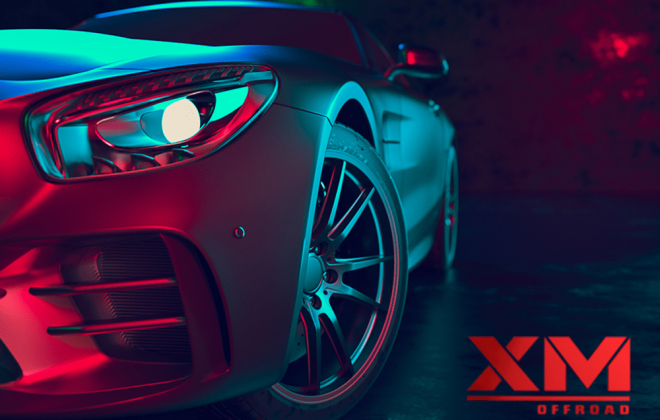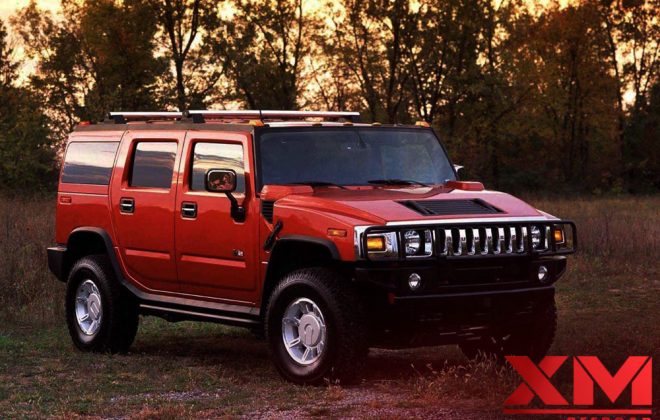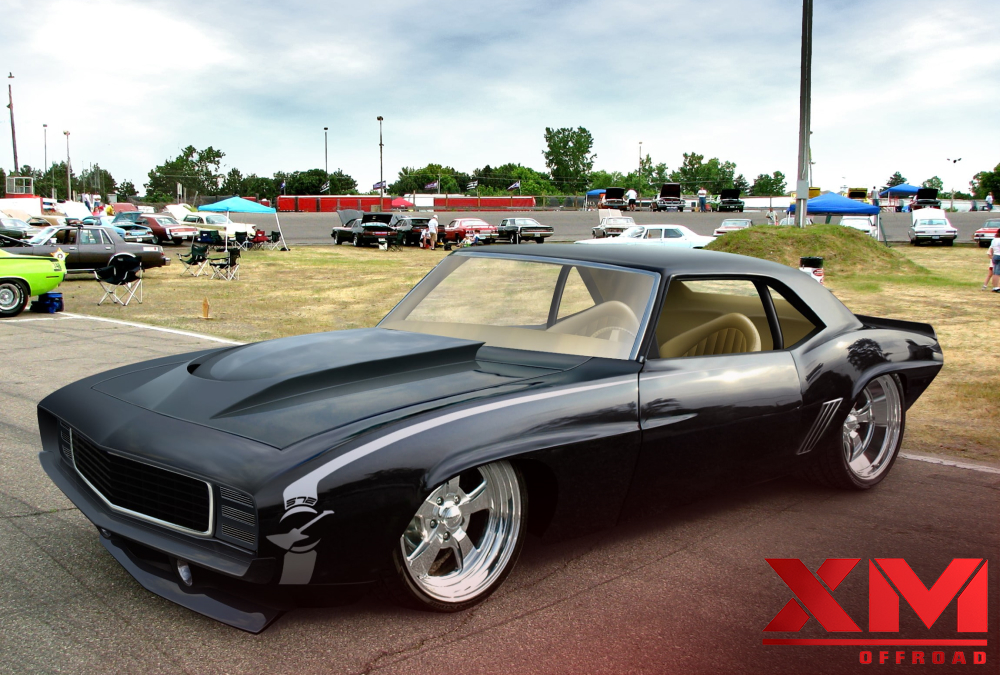
15 Tips for Choosing the Perfect Custom Rims for Your Vehicle
When it comes to enhancing the appearance and performance of your car, truck, or SUV, upgrading to custom rims is an excellent choice. Custom rims not only add a touch of individuality to your vehicle but also provide various benefits like improved handling, better braking, and increased overall driving experience. However, with so many options available on the market, it can be overwhelming to pick the right custom rims for your ride. In this blog, we’ll walk you through the essential considerations to keep in mind when selecting custom rims for cars, trucks, and SUVs.
-
Understand Rim Sizing and Fitment:
The first step in picking the perfect custom rims is to understand the sizing and fitment requirements for your specific vehicle. Rims are available in various sizes, typically measured in inches, where the diameter and width are the primary parameters to consider. Ensure that the rim size you choose matches the tire size recommended for your vehicle by the manufacturer. Installing the wrong size can adversely affect the performance and safety of your ride.
-
Determine the Bolt Pattern:
The bolt pattern is a critical factor when it comes to fitting custom rims on your vehicle. To avoid compatibility issues, make sure the custom rims you choose have the same bolt pattern as your vehicle.
-
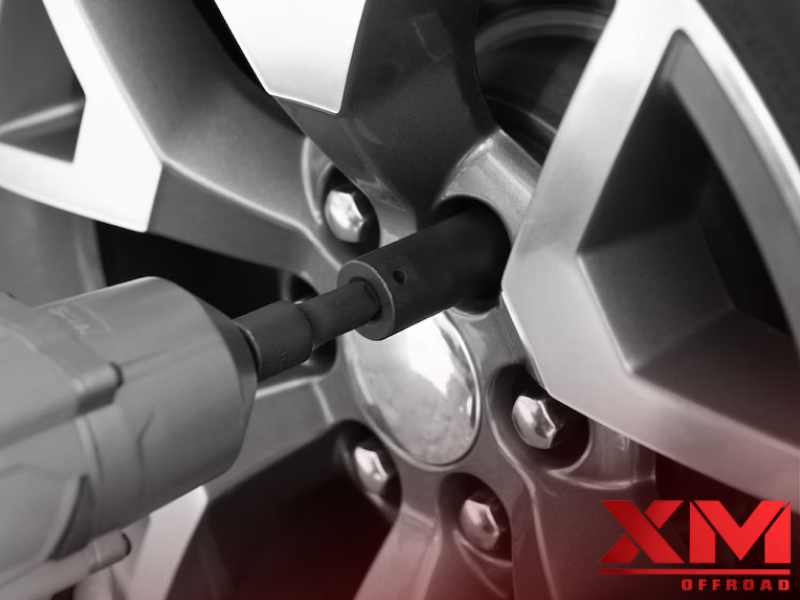
-
Material and Construction:
Custom rims are available in various materials, with the most common being steel, aluminum, and alloy. Each material has its pros and cons, and the right choice depends on your preferences and driving needs.
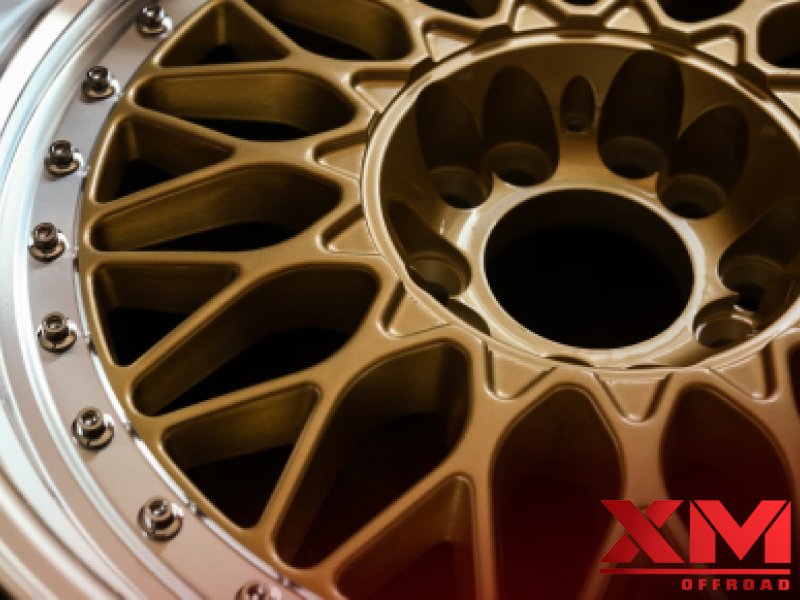 Steel rims are sturdy and more affordable but can be heavier, impacting fuel efficiency and handling.
Steel rims are sturdy and more affordable but can be heavier, impacting fuel efficiency and handling.
- Aluminum rims are lightweight, enhancing performance and fuel efficiency, but they may come at a higher price point.
- Alloy rims offer a balance of strength and weight, often providing an attractive blend of performance and style.
-
Consider the Driving Conditions:
Another vital aspect to consider is the typical driving conditions your vehicle will encounter. Different custom rims are designed to excel in specific environments.
- For city driving and daily commutes, sleek and stylish rims with larger diameters can enhance aesthetics.
- Off-road enthusiasts might prefer XM Off-road truck wheels, built to withstand rough terrains and offer superior durability.
-
Evaluate Rim Finishes:
Custom rims are available in various finishes, each providing a unique look and level of maintenance.
- Chrome rims exude a classic, shiny appearance but may require more frequent cleaning to preserve their luster.
- Matte black rims offer a modern, aggressive look and are easier to maintain as they hide dust and dirt well.
- Polished or brushed rims provide a sophisticated appearance, but they might require more effort to keep them looking pristine.
-
Check Load Rating and Weight Capacity:
When selecting custom rims, ensure they have an adequate load rating to support the weight of your vehicle and any additional cargo. Overloading your rims can lead to safety hazards and premature wear.
-
Research Customer Reviews:
Before finalizing your decision, read customer reviews and feedback on the specific custom rims you are considering. Real-world experiences from other vehicle owners can provide valuable insights into the performance, durability, and overall satisfaction of the product.
-
Budget Wisely:
Custom rims come in a wide price range, so it’s essential to set a budget before starting your search. Remember that quality rims can be a long-term investment, and it’s worth spending a bit more for superior performance and durability.
-
Seek Expert Advice:
If you’re still unsure about which custom rims are best suited for your vehicle, don’t hesitate to seek expert advice. Visit reputable automotive shops or consult with experienced mechanics who can guide you in making the right choice based on your driving habits, vehicle specifications, and personal preferences.
-
Consider Wheel and Tire Packages:
To simplify the process and ensure a perfect fit, consider purchasing 26 inch wheels and tire packages. These packages come with custom rims pre-mounted with compatible tires, saving you the hassle of matching the correct tire size and style to your chosen rims.
-
Understand Offset and Backspacing:
Apart from bolt pattern and sizing, it’s crucial to understand offset and backspacing. Offset refers to how far the mounting surface of the wheel is from its centerline. Positive offset means the mounting surface is towards the front of the rim, while negative offset places it towards the back. Backspacing, on the other hand, is the distance between the back of the rim and the mounting surface.
- The right offset and backspacing are essential to ensure proper clearance between the wheel, tire, and suspension components.
-
Check for Warranty and Customer Support:
When purchasing custom rims, inquire about the warranty provided by the manufacturer. A reliable warranty demonstrates the manufacturer’s confidence in their product’s quality and performance.
-
Maintain Your Custom Rims:
Once you’ve invested in the perfect custom rims, it’s essential to maintain them properly. Regularly clean your rims to prevent the buildup of dirt, brake dust, and road grime. Use a non-abrasive cleaning solution and a soft cloth to preserve the finish and shine of your rims.
-
Avoid Counterfeit Products:
When purchasing custom rims, beware of counterfeit or imitation products offered at significantly lower prices. These products might not meet safety and quality standards, compromising your driving experience and even posing risks to your vehicle’s structural integrity.
-
Finalize Your Decision:
Armed with the knowledge of rim sizing, fitment, material, driving conditions, finishes, load rating, customer reviews, and expert advice, you’re now ready to make an informed decision. Take your time and compare various options before finalizing your choice of custom rims for your car, truck, or SUV.
Conclusion:
Choosing the right custom rims for your vehicle is a decision that should not be taken lightly. With various factors to consider, from rim sizing and fitment to driving conditions and finishes, the process can seem overwhelming. However, armed with the information provided in this guide, you can confidently navigate the world of custom rims and make a well-informed decision.
Read Also: Elaborate Top 7 Jeep Grand Cherokee Accessories
So, take the time to research, consult experts, and read customer reviews to find the best custom rim that not only complement your vehicle but also provide long-lasting satisfaction. Investing in high-quality custom rims is an investment in your vehicle’s style and performance, and it’s a decision you won’t regret. Get ready to hit the road in style and make a statement with your customized ride!
FAQs
Q1) How do I determine the right size of custom rim for my vehicle?
Choosing the correct size of custom rims is crucial for optimal performance and aesthetics. To determine the right size, you should consider the following factors: the diameter, width, and offset. The diameter should match the tire size specified by the manufacturer, while the width should complement the tire’s width. The offset determines how far the rim sits from the wheel hub. Always refer to your vehicle’s manual or consult a professional to ensure you select rims that fit perfectly.
Q2) What are the benefits of upgrading to custom rims for my vehicle?
Upgrading to custom rims offers various benefits beyond the visual appeal. Firstly, they can enhance the handling and performance of your vehicle. Wider rims provide improved grip, while lighter ones reduce un-sprung weight, resulting in better acceleration and braking. Secondly, custom rim allow for a personalized style, allowing you to stand out and express your unique taste. Lastly, investing in quality custom rim can potentially increase the resale value of your vehicle.
Q3) How do I choose the best material for custom rims?
Custom rims are available in various materials, each with its own pros and cons. Common materials include aluminum alloy, steel, and forged alloy. Aluminum alloy rims strike a good balance between strength and weight, making them a popular choice for most vehicles. Steel rims are more affordable and durable but tend to be heavier. Forged alloy rims offer superior strength and reduced weight, making them ideal for high-performance vehicles. Consider your driving needs, budget, and aesthetic preferences when selecting the material.


